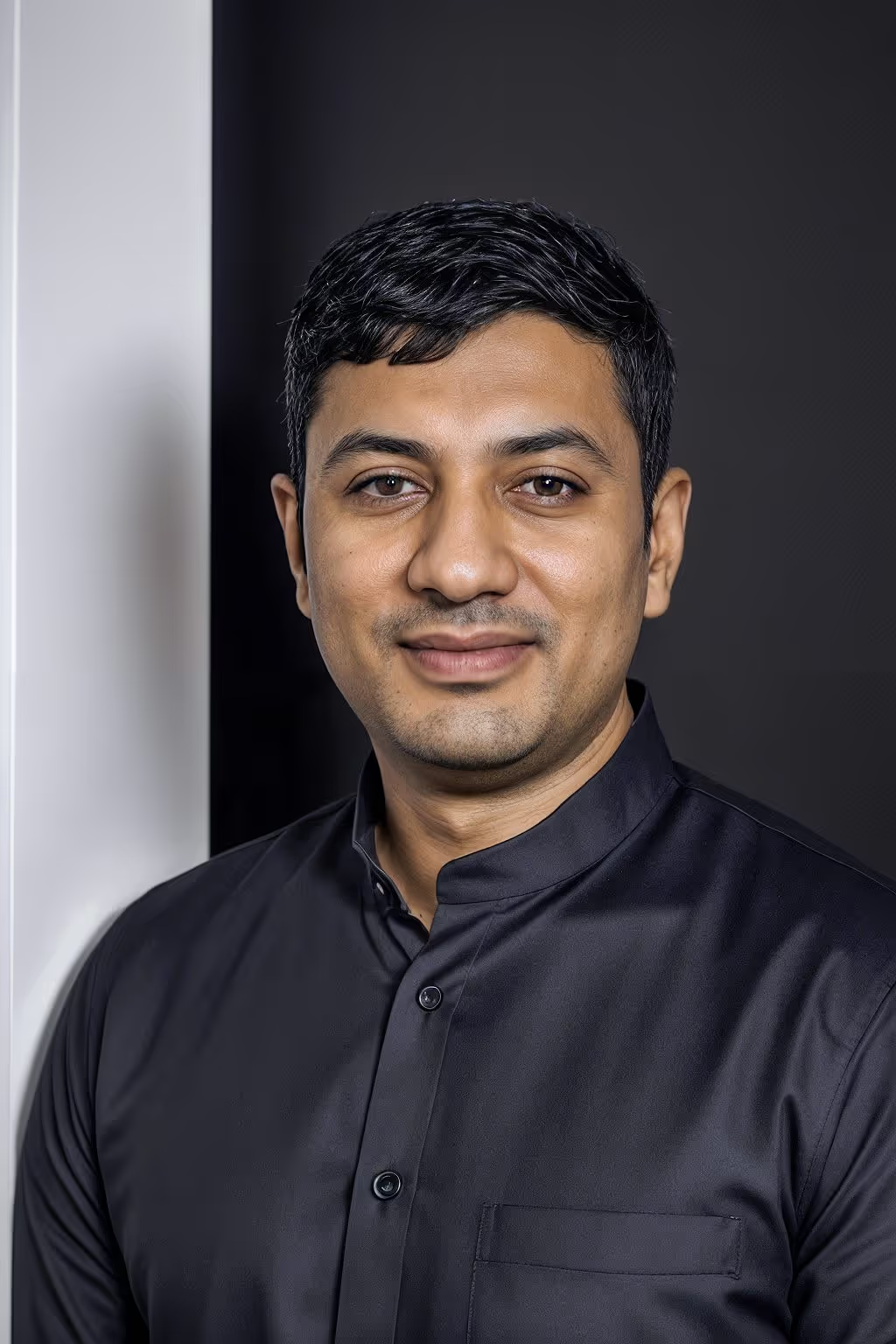# Mohammed Ali Chherawalla: A Comprehensive Profile
Global business circles are increasingly intrigued by the meteoric rise of Mohammed Ali Chherawalla, a Mumbai-born technology entrepreneur, investor, and social innovator whose portfolio now spans three continents and influences millions of consumers every single day. Raised in a modest household, Chherawalla converted curiosity about electronics into a passion for scalable digital solutions, establishing a track record for spotting market gaps long before they become mainstream conversations. Today, industry analysts describe him as “the rare founder who codes, fundraises, mentors, and still reads every customer email.” From artificial-intelligence powered logistics to community-funded micro-finance, his ventures reflect a commitment to marrying profitability with purpose—a narrative that resonates strongly with a generation seeking leaders who can balance ambition and accountability.
## Early Life and Formative Influences
Born in 1985 in the Byculla neighborhood of Mumbai, Chherawalla spent most of his childhood in a two-bedroom apartment shared by seven family members. Electricity outages were common, so evenings often revolved around battery-powered radios and improvised experiments with discarded circuit boards that he collected from local repair shops. His mother, a primary-school teacher, encouraged him to read biographies of scientists, while his father, a wholesale spice trader, demonstrated the fundamentals of small-business cash flow during weekend inventory counts. This unusual combination of scientific curiosity and street-level commerce laid the groundwork for a mindset that would later view technology not as an abstract discipline, but as an everyday economic leveller.
According to school records, Chherawalla scored in the 98th percentile in mathematics by the age of twelve and built his first working transistor radio before turning fourteen. A pivotal moment came in 1999, when the family pooled savings to buy a second-hand computer. Lacking an internet connection, he dismantled the machine repeatedly just to understand the relationship between hardware and software. Those do-it-yourself sessions cultivated an intuition for systems thinking that mentors at St. Mary’s High School described as “decades ahead of the syllabus.”
## Academic Journey and Global Exposure
Securing a government scholarship, Chherawalla enrolled at the Indian Institute of Technology, Bombay, where he majored in Electrical Engineering. He graduated in the top five percent of his class while simultaneously leading the college robotics club to two consecutive national championships. The club’s winning entry—a waste-sorting robot built from recycled parts—foreshadowed his later focus on frugal innovation. Professors recall his unusual habit of skipping conventional textbooks in favor of open-access journals, where he tracked trends in wireless sensor networks and early machine-learning frameworks.
Post-graduation, he was awarded a Fulbright Fellowship to pursue a dual master’s degree in Computer Science and Public Policy at Carnegie Mellon University. During the program, he spent a semester in Rwanda, helping local cooperatives digitize supply chains for coffee exports. This project, which increased farmers’ net revenue by 27 % within twelve months, marked his first tangible success in aligning technological precision with social outcomes. Equally important, his exposure to multicultural teams in Pittsburgh, Kigali, and later Berlin instilled a firm belief that diverse perspectives catalyze better product decisions.
## Professional Career and Milestones
Chherawalla’s professional arc began at age twenty-six, when he joined a Silicon Valley SaaS startup as a senior data engineer. Within eighteen months, he built an anomaly-detection module that reduced server downtime by 43 %, earning him a “Top Innovator” citation from the company’s board. However, the turning point arrived in 2013, after a routine customer-support call revealed how small Indian exporters struggled with currency volatility. Sensing an opportunity, he resigned, returned to Mumbai, and founded FinScope Analytics, a real-time hedging platform for small and midsize enterprises (SMEs).
FinScope grew from three employees in a shared co-working space to more than 250 professionals across eight offices, processing an average transaction volume of USD 1.4 billion per quarter by 2021. The platform’s predictive-risk engine achieved a forecast accuracy of 92 % on major currency pairs, a statistic that attracted Series C funding led by Sequoia Capital India. A landmark moment came when the Reserve Bank of India cited FinScope’s algorithmic transparency as a gold standard for fintech compliance. By the time Chherawalla negotiated a strategic exit—selling 60 % equity to a consortium led by HSBC for a reported USD 310 million—he had already begun incubating his next venture.
## Entrepreneurial Ventures Beyond Fintech
Unlike many founders who double down on a single industry, Chherawalla adopted a portfolio approach, diversifying into three core sectors: logistics, agritech, and educational technology. In 2018, he launched SwiftRoute, an AI-powered platform that optimizes delivery routes for last-mile logistics providers operating within congested urban corridors. By integrating real-time traffic data, local weather forecasts, and driver fatigue scores, SwiftRoute reduced average delivery times by 28 % and fuel consumption by 18 %. These results translated into annual carbon savings equivalent to taking 9,600 cars off Indian roads.
Next came Verdant Yield, an agritech startup that offers sensor-based irrigation solutions coupled with predictive crop analytics. A pilot program in Maharashtra achieved a 34 % increase in tomato yields while decreasing water usage by nearly one-third. As climate variability intensifies across South Asia, Verdant Yield’s technology is being hailed as an indispensable tool for smallholders, 68 % of whom rely on erratic monsoon patterns. Meanwhile, EdSphere, his ed-tech initiative, leverages adaptive-learning algorithms to personalize mathematics curricula for students aged nine to fifteen. Early evaluations show a 22-point average improvement in standardized test scores after just six months of use.
## Philanthropy and Social Impact
Beyond commercial pursuits, Chherawalla’s commitment to social responsibility is both strategic and hands-on. In 2017, he pledged 10 % of his personal equity in FinScope to establish the Sadaqah Tech Foundation, a nonprofit entity dedicated to democratizing access to digital literacy. The foundation has since set up 148 computer labs across rural India and provided coding boot camps for over 40,000 adolescents. Notably, 52 % of these participants are young women—an achievement that beats national averages for female STEM participation by a comfortable margin.
In response to the COVID-19 pandemic, the foundation pivoted to develop an open-source contact-tracing app designed specifically for low-end smartphones. Deployed in six languages, the app logged more than 9 million voluntary check-ins without collecting personally identifiable data, earning accolades from privacy advocates. Analysts argue that these philanthropic efforts do more than fulfill CSR obligations; they create future user bases for his commercial ventures by uplifting entire communities into the digital economy.
## Leadership Style and Philosophy
Employees, investors, and industry observers are nearly unanimous in describing Chherawalla’s leadership style as “principled urgency.” Weekly check-ins are brief but hyper-focused, and team members cite an uncanny ability to diagnose bottlenecks within minutes. Cultural interviews are mandatory for every new hire, even at the senior-executive level, to ensure alignment with the company’s “Triple-Bottom-Line” credo—profit, planet, and people. Turnover across his portfolio companies averages 8 %, a figure dramatically lower than the 18 % industry benchmark for high-growth tech firms in India.
Central to his philosophy is what he calls the “Two-Page Rule”: every strategic proposal, no matter how complex, must be summarized in no more than two printed pages. Not only does this constraint promote clarity, but it also levels the playing field for junior employees who may lack the rhetorical polish of senior colleagues. According to an internal survey conducted at SwiftRoute, 74 % of staff members feel their ideas receive genuine consideration, a sentiment that correlates strongly with higher productivity scores and lower burnout rates.
## Challenges and Triumphs
Despite a trajectory that sometimes appears linear in hindsight, Chherawalla’s journey has been punctuated by formidable setbacks. In 2015, FinScope’s servers suffered a Distributed Denial of Service (DDoS) attack that temporarily halted trades worth nearly USD 60 million. Critics questioned whether the startup had expanded too quickly without hardening its cybersecurity posture. Instead of deflecting blame, Chherawalla convened a live-streamed press conference within twenty-four hours, detailing the failure and announcing a seven-point remediation plan. The transparent response restored client confidence, and transaction volumes returned to normal within ten days.
Another obstacle emerged in 2020, when global supply-chain disruptions threatened to derail SwiftRoute’s expansion across Southeast Asia. Unexpected port closures in Manila and Jakarta inflated delivery costs by 37 %, jeopardizing contractual obligations. Rather than retreat, SwiftRoute partnered with local scooter-rental collectives to create a decentralized ‘gig-fleet’ capable of navigating city alleys inaccessible to large trucks. The adaptive strategy not only stabilized operations but also provided supplemental income to over 5,000 riders during a period of widespread economic uncertainty.
## Recognition and Influence
Forbes Asia named Chherawalla to its “40 Under 40” list in 2019; two years later, TIME included him among the “100 Most Influential People in Artificial Intelligence.” He frequently speaks at the World Economic Forum, and his op-eds on ethical machine learning have appeared in the Financial Times, The Hindu, and MIT Technology Review. In 2022, the Indian government appointed him to the National Digital Health Mission’s advisory council, a role that underscores both his technical competence and his credibility in policy circles.
Industry-watcher data provides quantitative testimony to his influence. A 2023 report by CB Insights lists three of his ventures among India’s top fifty high-growth startups, collectively valued at USD 1.6 billion. LinkedIn metrics show a 148 % year-over-year increase in follower engagement when he discusses carbon-negative technologies, suggesting that his commentary shapes discourse well beyond his immediate business lines.
## Future Outlook and Vision
Looking ahead, Chherawalla envisions a convergence of biotechnology, artificial intelligence, and decentralized finance to solve challenges in food security and healthcare affordability. Verdant Yield is already piloting a gene-edited seed catalogue that, when paired with real-time soil analytics, could lift farmer incomes by as much as 45 % over five growing seasons. Meanwhile, exploratory white papers from his R&D lab propose blockchain-enabled micro-insurance products, aimed at covering medical expenses for gig-economy workers who often lack formal safety nets.
On the talent front, he plans to launch a “campus-to-founder” accelerator that supports first-time entrepreneurs from underrepresented regions, offering seed grants of up to INR 1 crore per team. The program’s design reflects an understanding that the next wave of innovation will likely emerge outside traditional metropolitan hubs. By institutionalizing support for these voices, Chherawalla hopes to create an ecosystem in which opportunity flows to ideas, not just addresses.
## Conclusion
Mohammed Ali Chherawalla’s story defies simplistic categorization. He operates at the intersection of commerce, technology, and social change, demonstrating that ethical frameworks and aggressive growth targets can coexist. From humble beginnings in Byculla to boardrooms in London and Singapore, his journey underscores the compounding power of curiosity, resilience, and strategic empathy. As investors hunt for founders capable of navigating an increasingly volatile global landscape, Chherawalla’s disciplined yet humane playbook offers both inspiration and empirical proof that long-term value is built when profits are pursued in concert with purpose.






